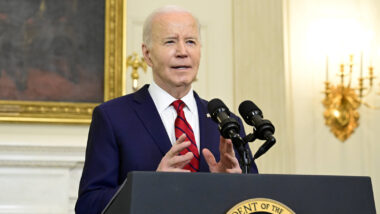Das Yale Information Society Project hat 9.5 Thesen für eine Technologie-Politik des nächsten US-Präsidenten formuliert:
The 9.5 Theses for Technology Policy in the Next Administration:
1. Privacy. Protect human dignity, autonomy, and privacy by providing individuals with control over the collection, use, and distribution of their personal information and medical information.
2. Access. Promote high-speed Internet access and increased connectivity for all, through both government and private initiatives, to reduce the digital divide.
3. Network Neutrality. Legislate against unreasonable discrimination by network providers against particular applications or content to maintain the Internet’s role in fostering innovation, economic growth, and democratic communication.
4. Transparency. Preserve accountability and oversight of government functions by strengthening freedom of information and improving electronic access to government deliberations and materials.
5. Innovation. Restore balance to intellectual property rules and explore alternative incentives to better promote innovation, freedom, access to knowledge, and human development.
6. Democracy. Empower individuals to fully participate in government and politics by making electronic voting consistent, reliable, and secure with voter-verifiable paper trails.
7. Education. Expand effective exceptions and limitations to intellectual property for education to ensure that teachers and students have access to innovative digital teaching techniques and educational resources.
8. Culture. Ensure that law and technology promote a free, vibrant and democratic culture, fair exchanges between different cultures, and individual rights to create and participate in culture.
9. Diversity. Limit media concentration and expand media ownership to ensure a diverse marketplace of ideas.
9.5 Openness. Support innovation and fair competition by stimulating openness in software, technological standards, Internet governance, and content licensing.
Von den Positionen her ist es unseren Forderungen für eine zeitgemässe Netzpolitik recht nahe.




Warum ist „Openness“ nur eine halbe These? Wenn für Grundsätze so billige Marketing-Tricks angewendet werden, habe ich wenig Hoffnung, dass sie ernst gemeint sind.
Aber auch der Rest ist wenig mehr als eine Sammlung von Allgemeinplätzen, die jede Politik für sich in Anspruch nehmen kann. „Protect human dignity“ ist eine schöne Begründung für Internet-Zensur und die hier angesprochene network neutrality verbietet nur „unreasonable discrimination“ – gegen vernünftige Restriktionen kann ja niemand etwas haben, oder?
Ablage P.